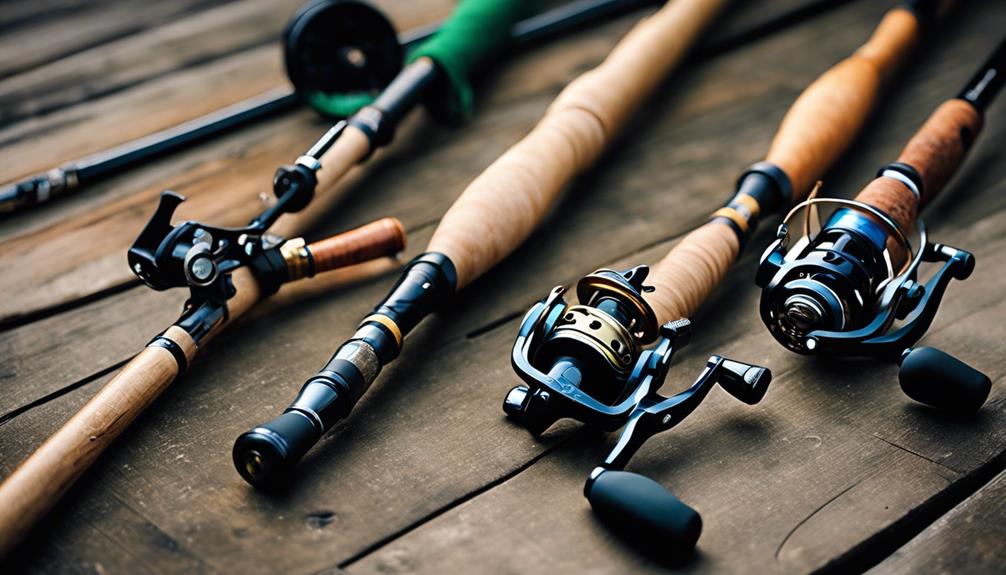Fishing is not just a hobby; it’s a way to connect with nature, relax, and spend quality time with friends and family. For many, the thrill of casting a line and reeling in a catch is an exhilarating experience. In this guide, we will explore how to fish effectively, covering essential techniques, gear, and tips to enhance your fishing experience. Whether you’re a complete novice or looking to refine your skills, this article will equip you with the knowledge to make your fishing trips successful.
Understanding the Basics of Fishing
Before diving into the specifics of how to fish, it’s essential to understand the basics. Fishing involves catching fish for sport or food using various techniques and equipment. The primary methods include angling, netting, and trapping. Angling is the most popular method among recreational fishers and typically involves using a rod, reel, and bait. To fish effectively, familiarize yourself with local fishing regulations, seasons, and the types of fish available in your area. This foundational knowledge will set you up for success on your fishing adventures.
Choosing the Right Fishing Gear
Selecting the appropriate gear is crucial when learning how to fish. The essential components include a fishing rod, reel, line, hooks, and bait. For beginners, a medium-action spinning rod is highly recommended due to its versatility and ease of use. Pair it with a spinning reel that matches the rod’s specifications. When it comes to fishing line, choose a monofilament line with a test strength appropriate for the fish species you’re targeting. Finally, select hooks and bait based on your fishing location and species preferences. Live bait, such as worms or minnows, can be very effective, while artificial lures come in various sizes and colors to attract different types of fish.
Learning Essential Fishing Techniques
Once you have your gear ready, it’s time to learn the fundamental fishing techniques. Casting is a critical skill that involves throwing your line into the water. Practice makes perfect, so take the time to master different casting styles, such as overhand, sidearm, and roll casting. Additionally, familiarize yourself with techniques like jigging, trolling, and bottom fishing, each suitable for different fishing environments. Understanding how to retrieve your line effectively can significantly impact your success. Vary your retrieval speed and method to see what entices the fish in your area.
Understanding Fish Behavior and Habitats
To improve your fishing skills, it’s essential to understand fish behavior and habitats. Fish are influenced by various environmental factors, including water temperature, depth, and structure. For example, during warmer months, fish often move to cooler, deeper waters, while in spring and fall, they may be found near shorelines. Pay attention to feeding patterns, as fish tend to be more active during dawn and dusk. Learning to read the water—identifying currents, eddies, and underwater structures—can also help you locate fish more effectively. By understanding fish behavior, you can tailor your approach to increase your chances of a successful catch.
Choosing the Right Location for Fishing
The location you choose to fish can make a significant difference in your success. Whether you prefer freshwater or saltwater fishing, each environment offers unique opportunities. In freshwater, consider lakes, rivers, and ponds, while in saltwater, explore beaches, piers, or deep-sea fishing. Research local fishing spots and consider factors such as accessibility, fish populations, and regulations. Many fishing communities have forums or social media groups where you can get recommendations from experienced anglers. It’s also beneficial to scout the area beforehand to identify potential hotspots.
Safety and Conservation in Fishing
Safety and conservation are paramount when learning how to fish. Always wear a life jacket when fishing from a boat and be aware of your surroundings, especially in unfamiliar waters. Additionally, practice responsible fishing techniques, such as catch and release, to help maintain fish populations and ecosystems. Familiarize yourself with local fishing regulations, including size and bag limits, to ensure you’re fishing sustainably. Promote conservation efforts by participating in clean-up events or supporting local wildlife organizations. By being a responsible angler, you contribute to preserving the sport for future generations.
Enhancing Your Fishing Skills Through Practice
Like any skill, practice is essential for improving your fishing abilities. Take the time to fish regularly, experimenting with different techniques, locations, and gear. Join local fishing clubs or participate in community events to learn from experienced anglers and share tips. Online resources, such as video tutorials and fishing blogs, can also provide valuable insights and techniques. Keep a fishing journal to document your experiences, noting what works and what doesn’t. This reflective practice will help you refine your approach and become a more skilled angler over time.
Conclusion: Enjoying the Thrill of Fishing
In conclusion, learning how to fish is an enjoyable and rewarding experience that connects you with nature and offers a sense of accomplishment. By understanding the basics, choosing the right gear, mastering essential techniques, and practicing responsible fishing, you can enhance your skills and enjoy countless memorable fishing trips. Remember that patience is key; not every outing will yield a catch, but the journey is just as important as the destination. So grab your gear, head out to your favorite fishing spot, and immerse yourself in the wonderful world of fishing!
